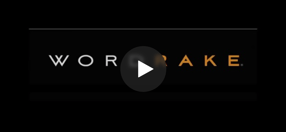Very Unique Is Not Very Good! All About Absolute Adjectives
Each of us is unique. We are not pretty unique, or sort of unique, or comparatively unique; each of us is one of a kind.
Grammarians call unique an absolute adjective, “applicable only to what is in some respect the sole existing specimen,” says Fowler in the classic Fowler’s Modern English Usage. We could search the world over for another you, but we would never find it.
Unique and other absolute adjectives are the black and white words on our grammar palette. In its strictest sense (remember that phrase), an absolute adjective is or it isn’t. Take, for instance:
parallel
Nothing can be more than parallel or the most parallel; nothing can be very, rather, or comparatively parallel; but, and this is the important point—something can approach parallelism, as in almost, nearly, or just about parallel.
I will say this again, another way, because the point confuses even authorities. If a word in its strictest sense describes a condition without degrees—smooth, round, straight—we may modify it, but not with a comparative—more—not with a superlative—most—and not with an intensifier—very. We may modify it only with words that describe approaching the absolute adjective:
incorrect: really smooth, incredibly round, perfectly straight
correct: almost smooth, nearly round, not quite straight.
can be somewhat permanent or very unique. But something can approach permanence or uniqueness, as in nearly permanent (his parents pray he will find an apartment), or almost unique (but for a doppelgänger we found in Argentina). And we may write that one thing approaches closer than another approaches, as in more nearly perfect. But, one more time: In its strictest sense, an absolute adjective, cannot be compared, cannot be crowned, cannot be intensified.
If you can appreciate the difference between somewhat and almost, you understand as much about absolute adjectives as do the authorities.
Adjectives that are not strict in any sense describe a quality that can exist to a greater or lesser degree. Fowler points out that we often “ignorantly” write unique when we mean remarkable, exceptional, fabulous, rare, marvelous. With adverbs, we can slice these adjectives into degrees like so much baloney—truly remarkable, somewhat rare, rather marvelous. Rather than try to modify an absolute adjective with more or most or an intensifier, we sometimes replace the absolute with an adjective we can modify:
I am now living in one of the most unique beautiful (remarkable, exceptional, fabulous) cities in America.
Gears are a somewhat unique rare (unusual, unknown, difficult) commodity.
Although authorities agree that mistakenly modifying absolutes is a problem, not one authority can agree with another on a list of these words that defy modification. Blending the lists of several authorities, the following is a start on compiling absolute adjectives; there are others:
absolute, blank, certain, circular, complete, dead, empty, equal, essential, eternal, final, fatal, favorite, perfect, permanent, perpendicular, pure, square, straight, supreme, total, unanimous, unique, vacant
One last question: Why can't we just go ahead and modify absolute adjectives? In The Careful Writer Theodore Bernstein worries that if we allow the “literary unwashed” (his description) to decide that more unique is correct usage, “the meaning of unique becomes eroded. What word will we then have,” he laments, “to convey the meaning of ‘the only one of its kind’?” Like WordRake. Or as Fowler would describe it, “the sole existing specimen, the like of which may be sought in vain.”


